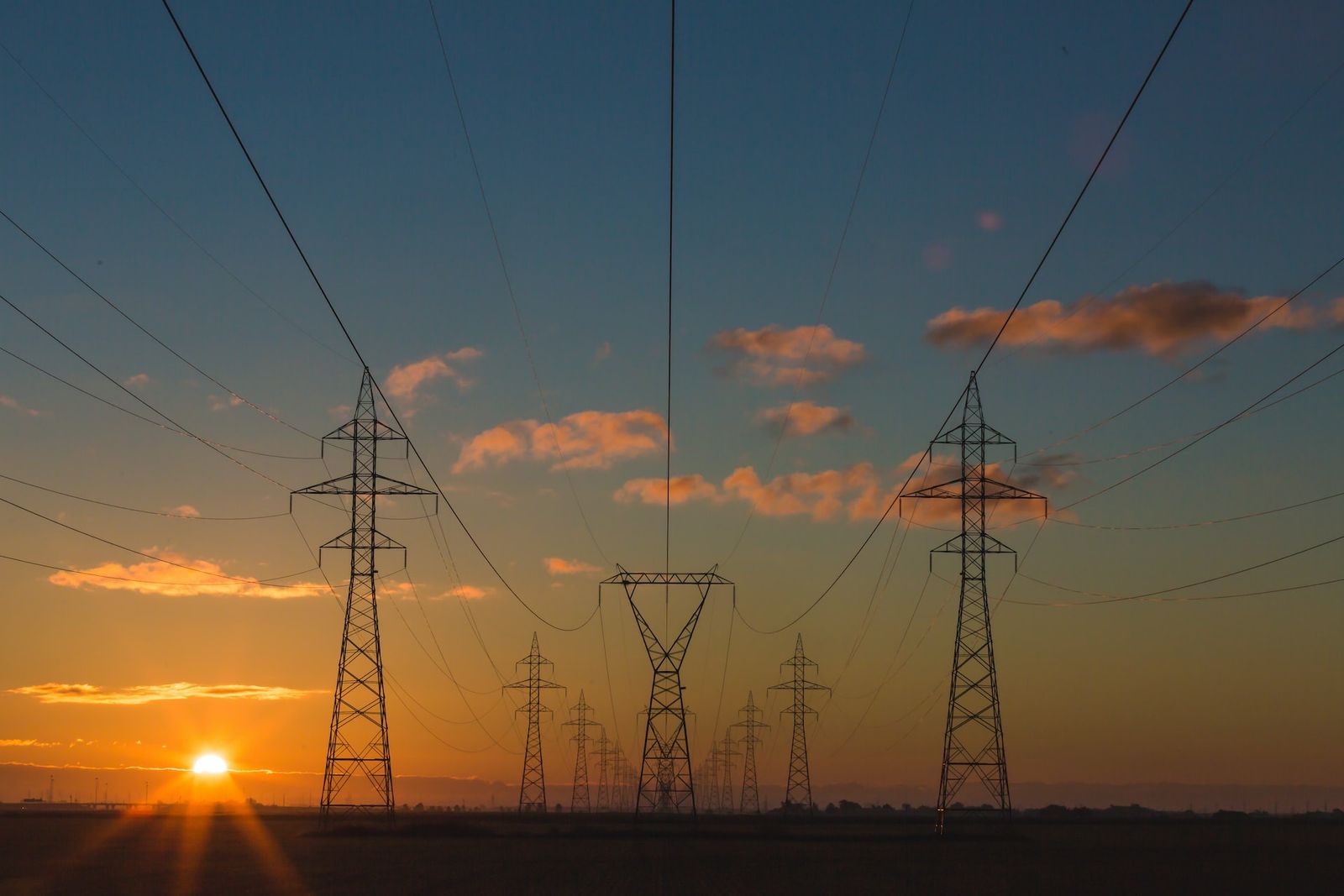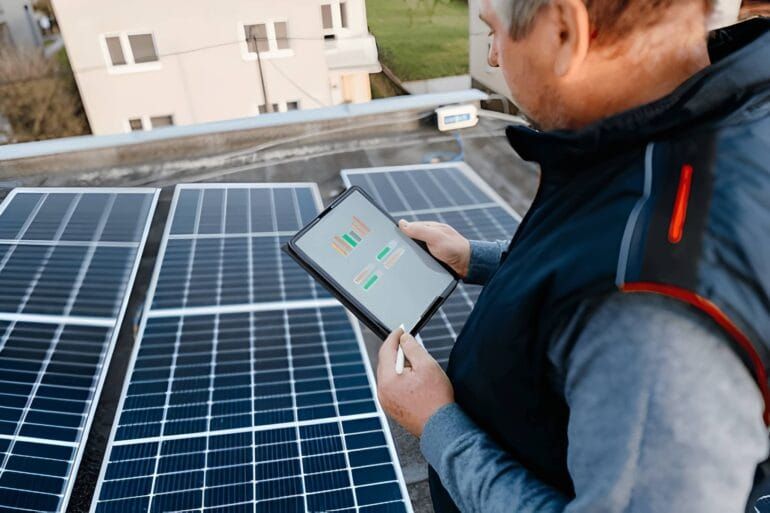Fears Over Summer, but we have not yet experienced the hottest part of the summer. Andy Wearmouth was concerned on a pleasant evening across Perth and southern Western Australia at the end of last month, while almost everyone else was contentedly ignorant. That evening, the organisation responsible for Western Australia’s biggest and most important electricity network asked a few diesel-powered generators to inject energy into the network.
According to Mr. Wearmouth, who was the head engineer at Synergy till 2017, the consequences of using diesel backup plants are obvious.
‘You’re nearly finished,’ Mr. Wearmouth said.
Much generating capacity remained.
It’s not pretty, and we haven’t yet experienced the hottest part of the summer.
Will the lights remain on fears over summer?
Fears are growing about the health of WA’s main power system and whether the lights will stay on over the coming months, as the state prepares for a hot summer.
There has been an increase in demand on the network recently, Mr. Wearmouth said, which has been exacerbated by a series of large, gas-fired plants going down.
It’s clear the grid is under stress due to the rapid decline of coal-fired power in the face of rising renewable energy output, said the 62-year-old.
He is actually worried, he said.
The power system is probably the most fragile I’ve seen since the late 1990s.
Power systems are wonderfully sturdy, but they have their limitations.
‘There appears to be a real convergence of events occurring at the moment.’
California’s two remaining coal-fired plants will be shut down by 2029, leaving just one privately owned coal generator.
Collie, south of Perth, where one miner is in receivership and the other is struggling to stay afloat, is a coal hub in deep trouble.
Many observers point to turmoil in the coal industry as being at the root of many of the system’s problems, but other factors are also involved.
Several of the biggest gas plants are offline, including a 335MW privately owned unit at Kwinana and
Synergy’s 250MW Cockburn and 118MW Pinjar turbines.
An offshore gas well leak in WA’s northern waters has slashed production at the processing hub of Varanus Island, cutting supplies to the south of the state.
The commissioning of Synergy’s large-scale battery at Kwinana, which is expected to be switched on by the end of the year, is reportedly behind schedule, with commissioning not likely to occur until early 2023.
The Minister assured that the lights would not turn off.
Minister for Energy Bill Johnston said that the timing of the massive battery project was within a ‘reasonable time frame for completion.’
There are always challenges in managing the SWIS, one of the world’s largest isolated electricity grids, according to Mr. Johnston.
The Indian financial institution behind Western Australia’s energy crisis, sparked by a failed coal mine, is seeking almost $1 billion to exit the arrangement.
Tesla’s big battery, though, appears to be helping maintain the lights on and people’s air conditioners humming.
Managing the West Australian electricity system is always challenging because it has one of the lowest population densities and supplies one of the largest electricity networks, Mr. Johnston said.
It’s prepared for the summer, but it’s not well prepared.”
The minister said that Synergy was working to overcome fuel shortages by importing coal from New
South Wales and maintaining adequate gas storage levels.
In addition, AEMO (Australian Energy Market Operator) sought extra backup energy reserves from generators and big power users to help the grid when it was under pressure, he said.
‘Individual outages for specific customers,’ he said, ‘are not what I’m saying.’.
“The grid is ready for the summer, but in terms of the grid itself, it isn’t.”
Not all people share the minister’s optimism.
‘It’s a close race up until Christmas.’
Liz Aitken runs an energy consultancy, Empire Carbon & Energy, from her house in Perth’s eastern suburbs.
Three years ago, she said she became so concerned about the state of the grid that she took matters into her own hands.
Ms. Aitken said that was why she installed batteries and solar panels in her house back in 2019.
“An important Zoom meeting isn’t the time to be disconnected from the grid or have your power cut.”
She admits that she was one of the fortunate ones whose supplies were not interrupted last summer
when problems with the poles-and-wires network caused rolling blackouts during an intense heatwave.
She is concerned that she won’t be as fortunate this time around if she looks forward.
‘We’re on a knife edge until Christmas,’ she said.
Everything will go right.
We’re just trying to survive right now.
‘We could find ourselves in a situation with blackouts fairly quickly if we get a run of really hot days or another plant falls over.’
The government is being caught flat-footed by the rapid pace of change in the energy industry, Ms.
Aitken said, calling for the transition away from fossil fuels to renewable sources of solar systems to be treated as an emergency.
Hurry is required, she said, to replace retiring coal plants with new generation, storage, and online transmission sources.
‘We must treat the energy transition as if it were an emergency in this state,’ she said.
States other than California are already doing what California wants to do.
“It appears we are not performing our jobs properly, and I worry that we will all be left in the dust.”
‘Luck and fair weather’ are the keys to success said Former Synergy Chief.
Longtime electricity industry worker and “Former Synergy Chief” Mr. Wearmouth concurred that the government must act quickly to keep the power sector stable, considering the magnitude of the change occurring there.
The Commissioner said the state must get a grip on coal supplies until they were no longer needed while noting that seven years were needed to build the replacement capacity.
Households and businesses in the south of the state are facing a white-knuckle ride this summer, Mr. Wearmouth said.
He said the system could be tipped into disarray by a run of hot weather or a dose of bad luck.
‘We just may make it, with a bit of luck and decent weather,’ Wearmouth said.
There will be some tough days ahead for those in charge of operating the market and dispatching the plant.
There is a possibility that you will succeed.
It is my belief that you will only need one material plant failure, which will probably bring you to a point where on certain days you don’t have sufficient capacity, particularly if the wind is not blowing.
It will become very messy, obviously.”
Strong Energy Infrastructure
Perth benefits from a robust and well-established energy infrastructure. The power grid is designed to withstand peak demand periods, including the hot summer months when energy consumption typically rises. The existing infrastructure, supported by maintenance and upgrades, provides a solid foundation for delivering a stable energy supply to businesses and households.
“Infrastructure is the bedrock of our modern society.” – Elon Musk
Investment in Energy Storage
To address concerns about energy supply during high-demand periods, investments have been made in energy storage technologies. Battery storage systems are becoming increasingly prevalent, enabling excess energy generated during off-peak hours to be stored and utilized when demand is at its peak. This helps maintain a consistent energy supply and alleviates strain on the grid.
“Energy storage is the key to unlocking the full potential of renewable energy.” – Unknown
Community Energy Initiatives
Perth is home to various community-driven energy initiatives that encourage local participation in energy generation and conservation. These initiatives promote the use of rooftop solar panels, energy-efficient practices, and collective action to reduce energy demand. Through such community efforts, the burden on the energy grid can be eased, ensuring a more reliable supply for all.
“Together, we can create a more sustainable energy future.” – Unknown
While concerns over the summer energy supply in Perth are understandable, it is important to acknowledge the existing strengths and ongoing efforts to ensure a stable and reliable grid. By leveraging a strong energy infrastructure, diversifying energy sources, embracing renewable energy integration, investing in energy storage, and fostering community energy initiatives, Perth can navigate the summer season with confidence.
“The future belongs to those who take proactive steps to secure their energy needs.” – Unknown
By remaining vigilant, proactive, and committed to sustainable energy practices, Perth can continue to meet the energy demands of its residents and businesses while minimizing the potential disruptions that may arise during the summer months.
Collaborative Efforts and Expertise
The energy sector in Perth thrives on collaborative efforts and the expertise of professionals who are dedicated to ensuring a reliable energy supply. Despite the departure of the former Synergy Chief Engineer, there are competent professionals and organizations working diligently to manage and optimize the energy grid. Their expertise, combined with ongoing collaboration among stakeholders, will help address any potential challenges that may arise during the summer.
“Collaboration is the key to overcoming challenges and achieving success.” – Unknown
Continuous Monitoring and Adaptation
Monitoring systems and advanced analytics play a crucial role in identifying potential issues and optimizing energy distribution. Constant monitoring of the grid allows for real-time adjustments, ensuring that any disruptions or imbalances are promptly addressed. By continuously adapting and improving the energy infrastructure, Perth can better withstand challenges and maintain a reliable energy supply throughout the summer.
“The ability to adapt is the key to survival and success.” – Unknown
By remaining vigilant, adaptive, and committed to the collective goal of a stable energy supply, Perth can ensure a summer season characterized by reliable power, sustainable practices, and the well-being of its residents and businesses.







